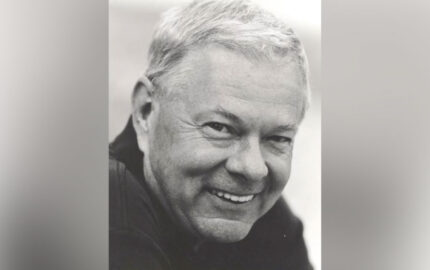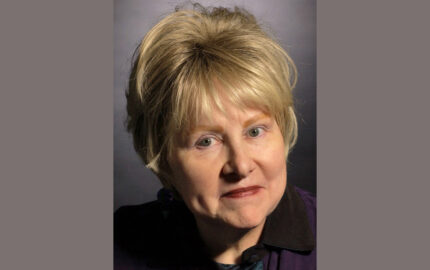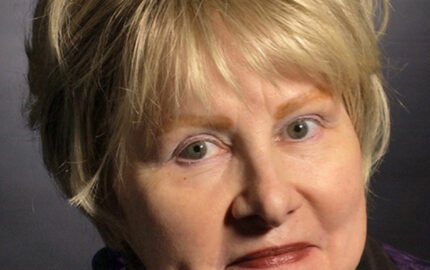CAMBRIDGE, MA. (Dec. 10, 2002) — Mark Chavunduka, a reporter and editor whose struggle for editorial independence became a rallying point for journalists in Zimbabwe and sub-Saharan Africa, died on Nov. 11, 2002.
Chavunduka, 37, died at West End Hospital in Harare, Zimbabwe, following a long illness. He was a Nieman Fellow in the Class of 2000. At the time of his death, Chavunduka was chief executive officer of Thomson Publications, the publishers of Parade magazine.
His family said that he had been in poor health and had checked himself into the hospital for severe dehydration.
Read an interview with Chavunduka and a detailed history of his case, including the efforts of his Nieman classmates to have it dismissed.
Chavunduka was the founding editor of The Standard, a private weekly newspaper. In January 1999, he and his chief reporter, Ray Choto, were arrested and brutally tortured by the Zimbabwean military two days after publication of an article about an alleged coup plot against President Robert Mugabe. They were beaten with wooden planks and rubber sticks, subjected to electric shock all over their bodies, and had their heads wrapped in plastic and submerged in a water tank.
The two were held despite court orders for their release and protests from around the world against their detention. Military authorities ignored three court orders -- including one from Zimbabwe's highest court -- to release the two journalists. After nearly two weeks in detention, Chavunduka and Choto were released on bail and charged with "publishing a false story capable of causing alarm and despondency."
Following his release, he was treated in Britain and the United States for post-traumatic stress disorder and continued to complain of nightmares and poor health. "There are times when you wake up in the middle of the night really sweating, almost as if you'd been taking a shower," Chavunduka recalled in a discussion with Nieman classmate Bill Krueger of the News & Observer of Raleigh, N.C. "You can't think. You just start crying."
In the face of these problems, Chavunduka saw his struggle as important. "It has made them stronger," he said of the independent news media in Zimbabwe. "It proved to the government that it can't just arrest folks. The public outcry, both locally and internationally, was so overwhelming."
Sixteen months after the arrests, Zimbabwe's high court ruled that the law under which Chavunduka and Choto were arrested was unconstitutional. The court also ordered an investigation into the arrest and detention of the two.
At a memorial service, Trevor Ncube, chief executive officer and publisher of The Standard, said "the little press freedom and sanity prevailing in the media [can be attributed] to Mark's continued exposure of state brutality," according to an article in The Standard. The paper described Chavunduka as a "fearless and frank journalist who will be difficult to replace."
"He was a young man with a passion for journalism, a young man who will be remembered for standing up to his regime and a young man who, by being tortured, brought to the attention of the world the kind of thing Robert Mugabe does to try to silence people," Ncube said.
Chavunduka is survived by his wife and three children.
He has received several international awards for courageous reporting, including the International Press Freedom Award from the Canadian Journalists for Free Expression.
Chavunduka, 37, died at West End Hospital in Harare, Zimbabwe, following a long illness. He was a Nieman Fellow in the Class of 2000. At the time of his death, Chavunduka was chief executive officer of Thomson Publications, the publishers of Parade magazine.
His family said that he had been in poor health and had checked himself into the hospital for severe dehydration.
Read an interview with Chavunduka and a detailed history of his case, including the efforts of his Nieman classmates to have it dismissed.
Chavunduka was the founding editor of The Standard, a private weekly newspaper. In January 1999, he and his chief reporter, Ray Choto, were arrested and brutally tortured by the Zimbabwean military two days after publication of an article about an alleged coup plot against President Robert Mugabe. They were beaten with wooden planks and rubber sticks, subjected to electric shock all over their bodies, and had their heads wrapped in plastic and submerged in a water tank.
The two were held despite court orders for their release and protests from around the world against their detention. Military authorities ignored three court orders -- including one from Zimbabwe's highest court -- to release the two journalists. After nearly two weeks in detention, Chavunduka and Choto were released on bail and charged with "publishing a false story capable of causing alarm and despondency."
Following his release, he was treated in Britain and the United States for post-traumatic stress disorder and continued to complain of nightmares and poor health. "There are times when you wake up in the middle of the night really sweating, almost as if you'd been taking a shower," Chavunduka recalled in a discussion with Nieman classmate Bill Krueger of the News & Observer of Raleigh, N.C. "You can't think. You just start crying."
In the face of these problems, Chavunduka saw his struggle as important. "It has made them stronger," he said of the independent news media in Zimbabwe. "It proved to the government that it can't just arrest folks. The public outcry, both locally and internationally, was so overwhelming."
Sixteen months after the arrests, Zimbabwe's high court ruled that the law under which Chavunduka and Choto were arrested was unconstitutional. The court also ordered an investigation into the arrest and detention of the two.
At a memorial service, Trevor Ncube, chief executive officer and publisher of The Standard, said "the little press freedom and sanity prevailing in the media [can be attributed] to Mark's continued exposure of state brutality," according to an article in The Standard. The paper described Chavunduka as a "fearless and frank journalist who will be difficult to replace."
"He was a young man with a passion for journalism, a young man who will be remembered for standing up to his regime and a young man who, by being tortured, brought to the attention of the world the kind of thing Robert Mugabe does to try to silence people," Ncube said.
Chavunduka is survived by his wife and three children.
He has received several international awards for courageous reporting, including the International Press Freedom Award from the Canadian Journalists for Free Expression.


